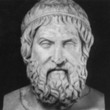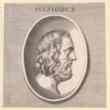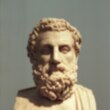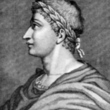The Odyssey
Description
More Details
Fagles, Robert translator
Fitzgerald, Robert,1910-1985 translator
Homer Author
Knox, Bernard,1914-2010 writer of introduction and notes
9780393634563
9780393089059
9781451674170
9780199925889
9781402523250
9781620124307
9780199360314
9781101975978
9781419347047
9780679410478
Table of Contents
From the Book
From the Book
Similar Titles From NoveList
Published Reviews
Choice Review
Translator of an acclaimed Iliad (CH, Mar'09, 46-3686), Jordan (independent scholar) enters the Homeric fray again, earnestly attempting to render the story of the many-faceted "inventive one"--of twisting and turning, cunning intelligence, to cite opening epithets he unfortunately glosses over. Readability is the goal here, but transforming the 12,110 lines of Greek dactylic hexameter into line-by-line English iambic pentameter leads to tedium, given the necessary elimination of many key textual epithets and patronyms. To do so is a translator's privilege, but it is a process some will question. Jordan's handling of the great Greek hero's emotional moments is revealing yet shortsighted. For instance, compare Jordan and Robert Fagles (The Odyssey, 1996) on Odysseus's weeping. Listening to the rhapsode's account of his quarrel with Achilles, Odysseus, Jordan writes, covered "his head to hide his face"--Fagles has the more expressive "handsome face." After the minstrel's description of the Trojan Horse, Odysseus "let go restraint and tears bedewed his cheeks" (literally, tears ran down his eyelids onto his cheeks)--Fagles has "melted into tears." In the arms of Penelope finally, Odysseus is urged to weep "and weep he did"--Fagles: "tears welled up inside his breast.") The robust introduction by E. Christian Kopff redeems the volume. Summing Up: Optional. Large collections. R. Cormier emeritus, Longwood University
School Library Journal Review
Gr 6 Up-Concise and briskly paced, this dynamic comic-book version streamlines Homer's plot and zooms in on the all-out monster-trouncing, enchantress-encountering, death-defying action. The exploits of the square-jawed Odysseus are resplendent in bold lines and jewel tones while the fickle gods and goddesses shimmer in translucent hues. A reader-grabbing intro to the epic. (c) Copyright 2011. Library Journals LLC, a wholly owned subsidiary of Media Source, Inc. No redistribution permitted.
Library Journal Review
The enduring character of the epic poem The Odyssey invites repeated attempts at translation, here most recently an energetic verse rendition by Wilson (classical studies, Univ. of Pennsylvania), who has authored books on the nature of tragedy, Socrates, and Seneca, as well as translations of plays by Euripides and Seneca. Wilson's goal is for the work to sound natural to the modern reader without falling into contemporizing anachronisms, such as those found in the translation of Stanley Lombardo. Unlike Robert Fagles or Robert Fitzgerald, Wilson deploys a natural English syntax, while closely following Homer's lines. Like Fagles and Barry P. Powell, she adopts iambic pentameter and seeks a diction that does not sound archaic, using the Latinate version of names and submerging many of the recurrent epithets. Thus Odysseus, "the man of many turns," becomes the "complicated man," or "bright-eyed goddess, Athena" becomes "she looked him straight into the eye," true to the spirit of the text if not always the word. -Wilson is particularly sensitive to the tone and description applied to the many women throughout the narrative, especially Helen and Penelope. VERDICT Wilson offers a fluent, straightforward, and accessible version of the Homeric epic; a solid reading edition.-Thomas L. Cooksey, formerly with Armstrong Atlantic State Univ., Savannah © Copyright 2017. Library Journals LLC, a wholly owned subsidiary of Media Source, Inc. No redistribution permitted.
Kirkus Book Review
Fresh version of one of the world's oldest epic poems, a foundational text of Western literature.Sing to me, O muse, of thewell, in the very opening line, the phrase Wilson (Classical Studies, Univ. of Pennsylvania) chooses is the rather bland "complicated man," the adjective missing out on the deviousness implied in the Greek polytropos, which Robert Fagles translated as "of twists and turns." Wilson has a few favorite words that the Greek doesn't strictly support, one of them being "monstrous," meaning something particularly heinous, and to have Telemachus "showing initiative" seems a little report-card-ish and entirely modern. Still, rose-fingered Dawn is there in all her glory, casting her brilliant light over the wine-dark sea, and Wilson has a lively understanding of the essential violence that underlies the complicated Odysseus' great ruse to slaughter the suitors who for 10 years have been eating him out of palace and home and pitching woo to the lovely, blameless Penelope; son Telemachus shows that initiative, indeed, by stringing up a bevy of servant girls, "their heads all in a row / strung up with the noose around their necks / to make their death an agony." In an interesting aside in her admirably comprehensive introduction, which extends nearly 80 pages, Wilson observes that the hanging "allows young Telemachus to avoid being too close to these girls' abused, sexualized bodies," and while her reading sometimes tends to be overly psychologized, she also notes that the violence of Odysseus, by which those suitors "fell like flies," mirrors that of some of the other ungracious hosts he encountered along his long voyage home to Ithaca.More faithful to the original but less astonishing than Christopher Logue's work and lacking some of the music of Fagles' recent translations of Homer; still, a readable and worthy effort. Copyright Kirkus Reviews, used with permission.
Library Journal Reviews
The enduring character of the epic poem The Odyssey invites repeated attempts at translation, here most recently an energetic verse rendition by Wilson (classical studies, Univ. of Pennsylvania), who has authored books on the nature of tragedy, Socrates, and Seneca, as well as translations of plays by Euripides and Seneca. Wilson's goal is for the work to sound natural to the modern reader without falling into contemporizing anachronisms, such as those found in the translation of Stanley Lombardo. Unlike Robert Fagles or Robert Fitzgerald, Wilson deploys a natural English syntax, while closely following Homer's lines. Like Fagles and Barry P. Powell, she adopts iambic pentameter and seeks a diction that does not sound archaic, using the Latinate version of names and submerging many of the recurrent epithets. Thus Odysseus, "the man of many turns," becomes the "complicated man," or "bright-eyed goddess, Athena" becomes "she looked him straight into the eye," true to the spirit of the text if not always the word. Wilson is particularly sensitive to the tone and description applied to the many women throughout the narrative, especially Helen and Penelope. VERDICT Wilson offers a fluent, straightforward, and accessible version of the Homeric epic; a solid reading edition.—Thomas L. Cooksey, formerly with Armstrong Atlantic State Univ., Savannah
Copyright 2017 Library Journal.






































